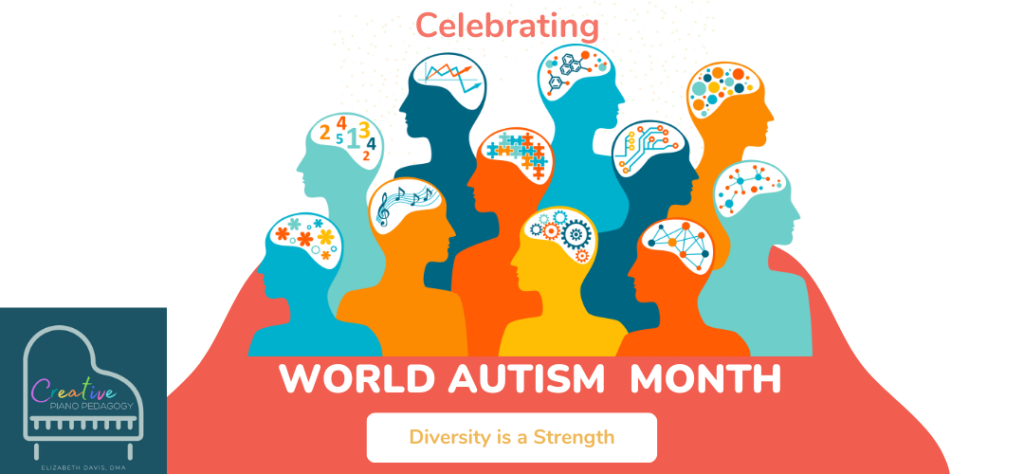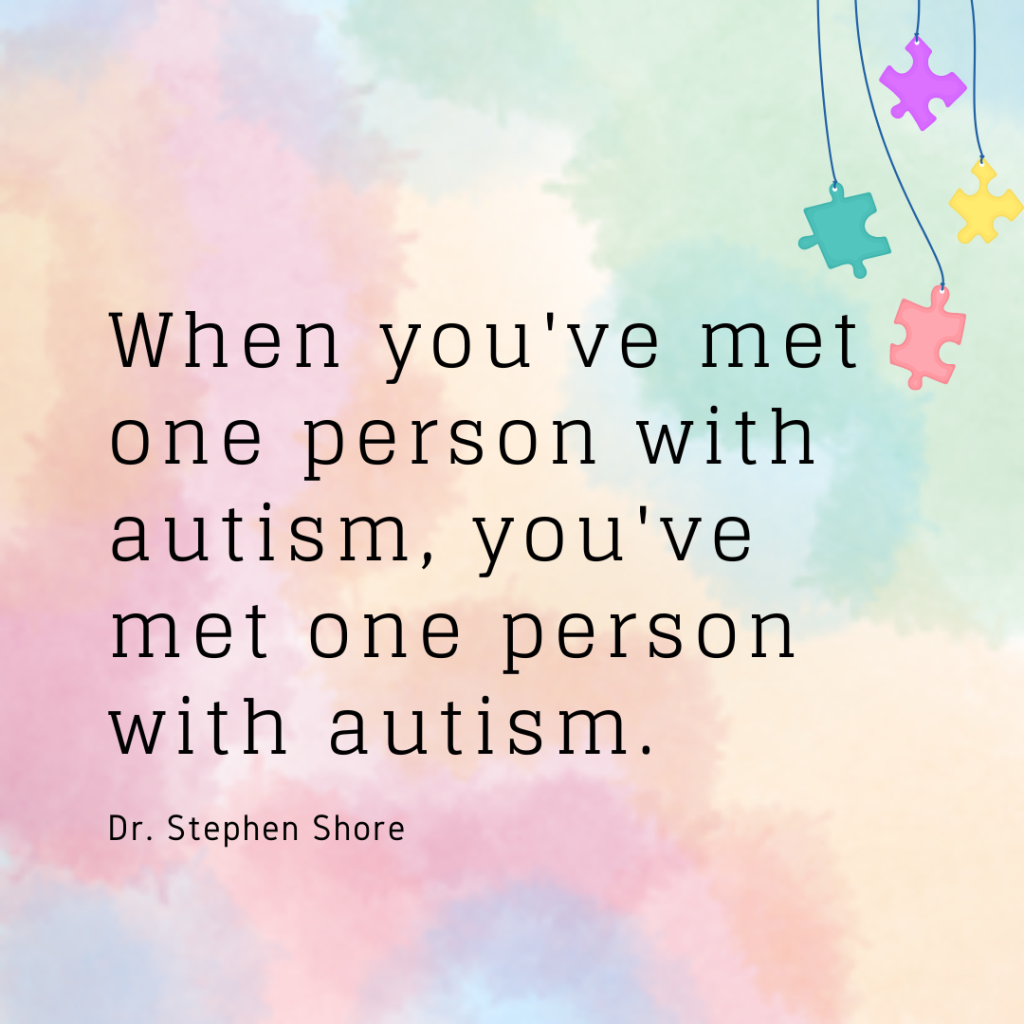About Autism + Piano Lessons (part 1)
- Dr. Elizabeth

- Apr 3, 2023
- 3 min read
Updated: Sep 6, 2025

It's April, so we're celebrating Autism!
A big part of what we do at Creative Piano Pedagogy is demystify disabilities and helping music/piano teachers find approaches that work best for students of all abilities and levels.
All students can be successful at the piano if teachers are patient, understanding, flexible, and are willing to be the student and learn how to teach concepts in different ways. Sounds simple, right?
It's a big spectrum
Autism seems to be an intimidating disorder for many teachers, and this is mostly due to the huge spectrum of behaviors, communication abilities, and social skills.
Autism. ASD. Autism Spectrum Disorder. These are all the same disability and diagnosis, but autism is truly a very large spectrum! Here are a few examples of the spectrum you might see in a piano studio with autistic students: -A student who has pretty typical interactions and social skills, communicates with sarcasm and wit- excels at patterns and memorization and sometimes goes off on long tangents about train facts. Will act in a typical manner and then suddenly get frustrated seemingly out of nowhere, shutting down and struggling to communicate what is going on. Struggles with hand position and finger independence/finger strength and muscle weakness. Asks a few questions that are a bit too personal...you know what I mean 😂 You aren't aware of a diagnosis and just think the student has a few learning quirks.
-A young student who doesn't maintain eye contact and struggles to stay still on the bench and quickly loses track of where they are playing in the music. They are a gifted pianist and can copycat anything you play with near perfection, and have an amazing ear for patterns. Almost irritatingly good. 😂 This student never forgets what you say, and is quick to remind you if anything is inconsistent. They don't miss anything. They're also regularly perturbed by the ticking of your clock, the slightly crooked picture on the wall, and how your pencils aren't all evenly sharpened. Oh, and your scarf is tied a bit unevenly- they are quick to let you know. 😂 This student seems to suddenly have meltdowns and you are totally confused why the behavior changes so quickly.
-A student with minimal verbal skills who has unpredictable behaviors and really struggles to communicate with you or understand your communications with them. Reading music isn't going well in lessons, and while they don't have a lot of focus, they can copycat and play back patterns and entire pieces you play for them! Baffling. Traditional counting and rhythm methods aren't working well, and you are working to try alternative methods without success. You are wondering if the student has dyslexia due to their confusion with LH/RH and struggle with reading the music even though they improvise and play by ear with excellence.
Here's the thing...
No two students, disability or not- learn the same! So how can we as teachers expect the same teaching methods to work for students who learn so differently, with a wide variety of behaviors, strengths and weaknesses? 🤷♀️
It doesn't work!
Then when you throw autism into the mix with the behavior, communication and social skill struggles often associated with it, teachers really feel the need to adapt. Did you know that many students with autism also have co-morbidities- or other disabilities along with autism, such as ADD, ADHD, dyslexia, visual tracking, processing delays/disorders? 😳 This is another reason why Dr. Stephen Shore's famous quote is so accurate: "When you've met one person with autism, you've met one person with autism."
During the month of April, CPP (both here on the blog and on Instagram/Facebook) will focus on all things autism + piano teaching to help empower you to become more confident in adapting your approach to work for students with disabilities! If you missed out on the new monthly teacher chat/cohort and want to be notified when the next group opens, just fill out this form and you'll be the first to know. 😊
Adapting piano lessons for autistic students sounds intimidating and complicated, but is quite simple after you figure out the right formula! And that's exactly what we'll be talking about later this week, so stay tuned. Do you have any specific questions about teaching students with autism or disabilities? Leave a comment below or send Elizabeth an email at creativepianopedagogy@gmail.com.
Thank you for being here! -Elizabeth




Comments